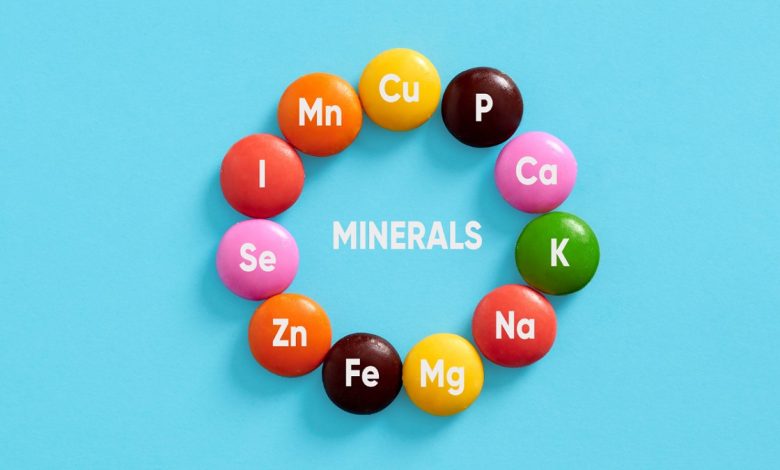The Vital Role Of Minerals In Maintaining Optimal Health

Vital Role Of Minerals: Minerals are essential nutrients that play a crucial role in maintaining the overall health and well-being of the human body.
They are involved in numerous biological processes, from building strong bones and teeth to regulating the heartbeat, balancing fluids, and supporting nerve function. Despite their importance, minerals often don’t receive the same attention as other nutrients like vitamins, yet a deficiency in any essential mineral can lead to a wide range of health problems.
Vital Role Of Minerals, In this essay, we will explore why minerals are important for health, highlighting their key functions and the impact of deficiencies.
The Vital Role Of Minerals
1.Supporting Bone Health

Vital Role Of Minerals, One of the most well-known roles of minerals, particularly calcium, phosphorus, and magnesium, is their contribution to bone health. Calcium is vital for building and maintaining strong bones and teeth, while phosphorus works alongside calcium to maximize bone strength.
Magnesium, another essential mineral, plays a critical role in converting vitamin D into its active form, which aids calcium absorption. Without an adequate intake of these minerals, individuals may develop conditions such as osteoporosis, where bones become weak and brittle, increasing the risk of fractures.
2. Regulating Body Functions
Vital Role Of Minerals, Minerals like potassium, sodium, and chloride are electrolytes that help regulate many essential bodily functions. They maintain the balance of fluids, support muscle contractions, and control nerve signals. For instance, potassium works to keep blood pressure in check by balancing the effects of sodium. Sodium itself is necessary for muscle function and nerve signaling, but too much sodium can lead to high blood pressure and cardiovascular issues. Therefore, a proper balance of these minerals is crucial for maintaining the body’s homeostasis.
3. Boosting Immune Function
Vital Role Of Minerals, Certain minerals, such as zinc and selenium, play a significant role in strengthening the immune system. Zinc is critical for immune cell development and function, helping to defend the body against infections. Selenium, on the other hand, works as a powerful antioxidant, protecting the body’s cells from oxidative damage and inflammation. Inadequate levels of these minerals can weaken the immune system, making the body more susceptible to illness and chronic diseases.
4. Enhancing Energy Production And Metabolism

Vital Role Of Minerals, Minerals such as iron, iodine, and magnesium are involved in the body’s energy production and metabolic processes. Iron is essential for the production of hemoglobin, a protein in red blood cells that carries oxygen throughout the body. Without sufficient iron, the body cannot produce enough healthy red blood cells, leading to fatigue and anemia. Iodine is necessary for thyroid function, which regulates metabolism and energy levels. Magnesium supports over 300 biochemical reactions in the body, including energy production, protein synthesis, and muscle function.
5. Preventing Deficiencies And Chronic Diseases
Vital Role Of Minerals, A deficiency in essential minerals can lead to serious health consequences, including chronic diseases. For example, a lack of calcium can lead to weakened bones and osteoporosis, while iron deficiency results in anemia, which causes fatigue, weakness, and shortness of breath. Insufficient potassium levels may lead to high blood pressure, while low magnesium levels have been linked to an increased risk of cardiovascular disease, type 2 diabetes, and migraine headaches. Ensuring a well-balanced diet that provides adequate minerals is key to preventing these health issues and maintaining long-term wellness.
Final Thought
Vital Role Of Minerals, Minerals are essential to almost every bodily function, from supporting the skeletal system to regulating blood pressure and boosting immunity. While they are often overshadowed by vitamins in discussions about nutrition, minerals are equally vital for sustaining good health. A balanced diet rich in fruits, vegetables, nuts, seeds, and whole grains can provide most of the essential minerals your body needs. By understanding the importance of minerals, individuals can make informed dietary choices to ensure they meet their daily nutritional requirements and maintain optimal health.
Also Read:
Fall Vitamins: The 5 Importance Of Taking Vitamins In Fall For Optimal Health
Essential Vitamins To Take In Autumn For Optimal Health
The 7 Health Benefits Of Vitamin C For Fall: Boosting Immunity And Wellness
Perfect Fall Breakfast: Nourishing Recipes For Crisp Mornings




